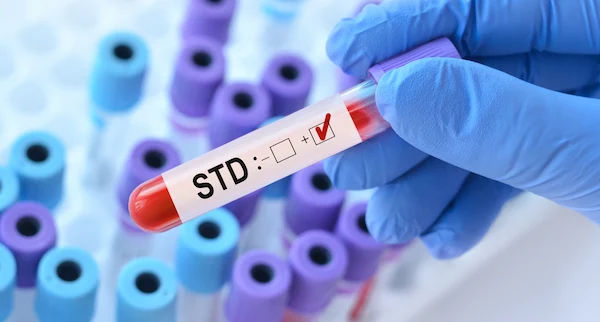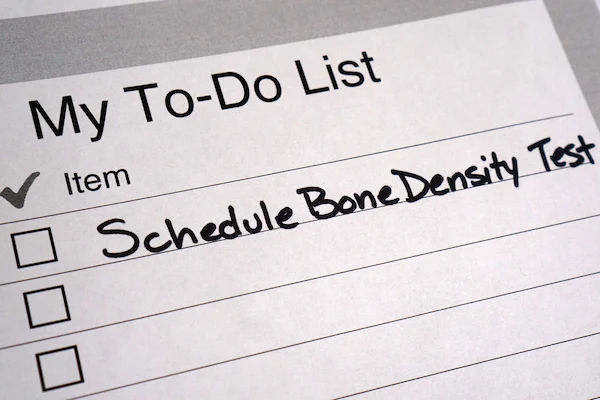Health Tests To Do Before Starting A Fitness Routine
Starting a fitness routine? Get the right health tests first—like heart checks, blood work, and mobility assessments—to ensure you're safe, ready, and set for success.

Written by Dr. Shaik Abdul Kalam
Reviewed by Dr. Rohinipriyanka Pondugula MBBS
Last updated on 9th Sep, 2025

Starting a new gym or fitness routine is a positive step toward improving your health and well-being. But before you dive into intense workouts, take a moment to understand your body’s current health status. For fitness newbies especially, knowing what’s going on inside your body can help prevent injuries, optimise your efforts and ensure your routine actually supports your health goals.
While enthusiasm is great, pushing your body without knowing its baseline can sometimes lead to unexpected challenges or even health risks. Ignoring subtle signs or potential underlying conditions can hinder your progress or cause complications. Fortunately, certain health tests can give you valuable insights so your doctor can identify any hidden issues or areas that need attention before you increase your physical activity. This proactive approach will guide you towards a personalised and safe fitness plan. In this guide, we’ll look at the health tests to do before starting a new gym or fitness routine so you can build a solid foundation for a healthier lifestyle.
What Happens When You Start a New Fitness Routine?
When you begin a new exercise program, your body undergoes significant changes and adaptations. Your heart, lungs, muscles, and metabolism all work harder to meet the demands of physical activity.
- Cardiovascular System: Your heart pumps more blood, and your blood vessels adapt to deliver oxygen and nutrients more efficiently.
- Muscular System: Muscles experience micro-tears during exercise, leading to repair and growth.
- Metabolism: Your body becomes more efficient at burning calories and using energy.
- Hormonal Changes: Exercise influences various hormones, including those related to stress, energy, and growth.
- Nutrient Demands: Your body's need for certain vitamins, minerals, and macronutrients increases.
For most healthy individuals, these adaptations occur smoothly. However, if there's an underlying condition, such as an undiagnosed heart issue, uncontrolled blood sugar, or a nutrient deficiency, the added stress of exercise can sometimes bring these problems to light or even worsen them. This is why a pre-exercise health check is a smart move.
When to Consider Health Tests Before Exercising?
Even if you feel generally healthy, a pre-gym health checkup is a wise step, especially for fitness beginners. You should specifically consider these tests and a doctor's consultation if:
- You're a Fitness Beginner: If you haven't been regularly active or are starting a significantly more intense routine.
- You're Over a Certain Age: Many guidelines suggest a checkup for men over 40 and women over 50, but it's beneficial for anyone starting new routines.
- You Have Existing Health Conditions: Such as diabetes, high blood pressure, high cholesterol, heart conditions, or kidney disease.
- You Experience Any Symptoms: If you've had unexplained fatigue, chest pain, dizziness, shortness of breath, joint pain, or muscle weakness.
- You Have Risk Factors: If there's a family history of heart disease, diabetes, or sudden cardiac events.
- You Plan for High-Intensity Training: If your routine involves very strenuous exercise.
- You're Taking Medications: Some medications can affect your heart rate, blood pressure, or energy levels during exercise.
A proactive health check allows your doctor to assess your readiness for exercise, identify any potential risks, and help tailor a fitness plan that's safe and effective for you.
Key Health Tests to Consider Before Starting a Fitness Routine
Before embarking on a new fitness journey, specific blood tests and assessments can provide crucial insights into your body's readiness. These tests help your doctor evaluate your heart health, blood sugar control, iron levels, and overall nutritional status, ensuring you can exercise safely and effectively.
Heart Health Assessment
- Lipid Profile (Cholesterol & Triglycerides): This blood test measures different types of fats in your blood, including total cholesterol, LDL ("bad") cholesterol, HDL ("good") cholesterol, and triglycerides.
Why it's important: High levels of certain fats can increase your risk for heart disease. Knowing your lipid profile helps your doctor assess your cardiovascular risk before you put extra strain on your heart through exercise. - Blood Pressure: While typically measured during a physical exam, consistently high blood pressure is a major risk factor for heart disease. Your doctor will check this.
Why it's important: Exercising with uncontrolled high blood pressure can be risky. Knowing your levels allows for management before increasing activity. - Electrocardiogram (ECG/EKG): This test records the electrical signals of your heart. It's often recommended if you have risk factors for heart disease or experience symptoms like chest pain or dizziness.
Why it's important: An ECG can detect underlying heart rhythm problems or other cardiac issues that might make certain exercises unsafe.
Blood Sugar Control
- Fasting Glucose: This blood test measures your blood sugar level after you haven't eaten for at least 8 hours.
- HbA1c (Glycated Haemoglobin): This blood test provides an average of your blood sugar levels over the past 2-3 months.
Why they're important: Undiagnosed or poorly controlled diabetes can lead to complications during exercise, such as dangerously low or high blood sugar. Knowing your blood sugar status helps prevent these issues and allows for proper management.
Book Apollo Blood Sugar Panel Here
Iron Levels and Anaemia Screening
- Complete Blood Count (CBC): This broad blood test provides information about your red blood cells, white blood cells, and platelets.
- Iron Studies (Ferritin, Serum Iron, TIBC): These tests measure how much iron is in your blood and how much is stored in your body (Ferritin).
Why they're important: Iron is essential for carrying oxygen to your muscles during exercise. Low iron levels or anaemia can cause significant fatigue, weakness, and shortness of breath, making exercise difficult and less effective. Screening helps identify and address these deficiencies.
Nutritional Status and Supplement Panel
- Vitamin D Levels: Vitamin D is crucial for bone health, muscle function, and immune support.
Why it's important: Deficiency is common and can impact muscle strength and recovery, affecting your exercise performance and overall well-being. - Vitamin B12 Levels: Vitamin B12 is vital for energy production and nerve function.
Why it's important: Low levels can lead to fatigue and weakness, hindering your ability to exercise effectively. - Magnesium Levels: Magnesium plays a key role in muscle contraction, nerve function, and energy production.
Why it's important: Deficiency can lead to muscle cramps, fatigue, and reduced athletic performance. - Electrolyte Panel (Sodium, Potassium): These minerals are crucial for fluid balance, nerve signals, and muscle contractions.
Why it's important: Imbalances can lead to muscle cramps, weakness, and even heart rhythm issues, especially during intense exercise or dehydration.
General Organ Function (if indicated)
- Kidney Function Tests (Creatinine, BUN): Assess how well your kidneys are filtering waste. Important for hydration and if considering high protein diets.
- Liver Function Tests (ALT, AST): Check liver health, especially if you're taking supplements or medications.
- Thyroid Function Tests (TSH): Evaluate your metabolism, which impacts energy levels and weight management.
The results from these health tests, combined with your symptoms, medical history, and a thorough physical examination, will help your doctor accurately assess your current health and identify any potential risks. This detailed understanding allows them to create a personalised and safe fitness plan designed to help you achieve your goals effectively.
Get Tested Easily with Apollo 24|7
If your doctor suggests getting health tests before starting a new gym or fitness routine, it’s important to choose a trusted and convenient testing service. Apollo 24|7 makes the process easy by offering accurate lab tests with fast results. These insights help you and your doctor understand how prepared your body is for physical activity, so you can create a safe and effective fitness plan that supports your goals.
Why Choose Apollo 24|7 for Your Pre-Gym Health Checkups?
Comprehensive Test Panels: Access complete test panels, such as the Apollo Fitness Package Superior, that cover essential markers for heart health, blood sugar, iron levels, and key vitamins and minerals.
- NABL-Accredited Labs: Tests are done in labs certified by the National Accreditation Board for Testing and Calibration Laboratories (NABL), ensuring accurate and trustworthy results.
- Home Sample Collection: Enjoy the convenience of blood sample collection at your home, saving you time and providing privacy.
- Easy Online Booking: Schedule your test quickly and easily through the Apollo 24|7 app or website.
- Fast Digital Reports: Receive secure, detailed test reports online promptly, ready to share with your doctor.
- Trusted Brand: Benefit from the trusted expertise and healthcare legacy of Apollo Hospitals Group, one of India’s most respected medical networks.
By choosing Apollo 24|7, you get access to dependable, convenient diagnostic services that make it easier to understand and manage your health effectively before and during your fitness journey.
For the most accurate and current pricing for tests like the Apollo Fitness Package Superior, it is best to check the Apollo 24|7 website, use their mobile app, or contact their customer support team directly. Pricing may vary based on your location, available offers, or membership benefits.
Get These Tests To Get A Yourself Checked up
Conclusion
Starting a new gym or fitness routine is a great move toward better health, but taking the time for a health checkup first can make your journey safer and more effective. It’s not about looking for problems, it’s about understanding your body’s current condition so you can train smarter.
By checking key health markers like heart function, blood sugar levels, iron status, and essential nutrients, you give your doctor the information needed to help you build a fitness plan that fits your body’s needs. This kind of preparation helps reduce the risk of injury, improves performance, and supports long-term success. If you’re new to exercise or returning after a break, talk to your doctor about which tests might be helpful. Taking this step sets the foundation for a fitness routine that’s not only safe but also sustainable and rewarding.






